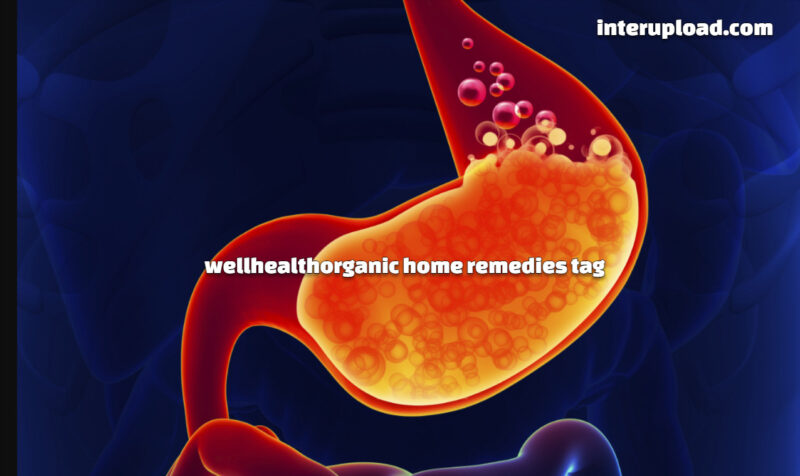Contrary to its name, heartburn is unrelated to your heart; rather, it manifests as a burning sensation in your esophagus, a 10-inch tube that links your mouth to your stomach. When heartburn strikes, it can endure for a few minutes or extend to several hours, causing discomfort. Hence, it’s understandable if you’re seeking quick relief with wellhealthorganic home remedies tag.
According to wellhealthorganic home remedies tag the root cause of heartburn and its exact sensation are explained by Dr. “Heartburn is a result of stomach acids flowing back into the esophagus.” While the stomach’s acidic contents are essential for food digestion, the esophagus is sensitive and can become irritated or even injured by this acid.
Also Read: wellhealthorganic vitamin b12 :
To prevent the stomach’s acidic contents from entering the esophagus, a circular muscle ring at the base of the tube, called the lower esophageal sphincter, acts as a valve. When relaxed, this valve allows food to pass into the stomach, and when contracted, it prevents food and acid from backing up into the esophagus. When this valve abnormally relaxes, allowing stomach contents to flow back into the esophagus, it results in acid reflux, with heartburn being the most prominent symptom.
The sensation can vary in intensity but typically includes:
- A burning feeling in your chest, behind your breastbone.
- Burning pain that ascends toward your throat.
- A bitter or sour taste in your mouth.
While underlying medical conditions or medications can sometimes cause acid reflux and heartburn, they are more often triggered by factors like diet and lifestyle choices, making occasional heartburn quite common.
Also Read: wellhealth ayurvedic health tips
wellhealthorganic home remedies tag : Common heartburn triggers, as noted by Dr:
- Consuming certain foods, such as spicy and acidic foods, caffeine, chocolate, and alcohol.
- Smoking.
- Being overweight.
For those seeking relief from acid reflux or fast heartburn alleviation, here are eight methods to ease or even prevent symptoms:
- Maintain a Food Journal and Avoid Trigger Foods: Certain foods and drinks can lower lower esophageal sphincter pressure, facilitating acid reflux. Identify trigger foods using a food and symptom diary and avoid them.
- Avoid Lying Flat After Eating: Refrain from lying down with a full stomach, especially within 2-3 hours of bedtime.
- Resist Overeating or Eating Quickly: Overeating, especially before bedtime, can increase pressure on the valve preventing stomach acid from entering the esophagus.
- Lose Weight: Excess weight can add pressure to the stomach, elevating the risk of acid reflux and heartburn. A well-balanced diet and regular physical activity help maintain a healthy weight.
- Elevate the Head of Your Bed: Raise the head and chest above your feet while sleeping to prevent and alleviate acid reflux and heartburn. You can achieve this by placing blocks under the bedposts or using a foam wedge under the mattress.
- Adjust Your Sleep Position: Sleeping on your left side may aid digestion and reduce stomach acid reflux.
- Wear Loose-Fitting Clothing: Tight-fitting belts and clothing that constrict your stomach can exacerbate symptoms.
- Quit Smoking: Smoking cessation can reduce the frequency and severity of acid reflux, potentially eliminating it.
Also Read: well health tips in hindi wellhealth
In case of severe or frequent heartburn, consult a doctor. For mild, occasional heartburn, over-the-counter antacids can provide relief. However, persistent or worsening symptoms should prompt a doctor’s evaluation, as daily reliance on antacids may indicate an underlying issue. Severe symptoms and warning signs, such as those in people over 60, vomiting blood, black or bloody stools, difficulty swallowing, unexplained weight loss, or other concerning symptoms, should be examined by a gastroenterologist as they may indicate more serious conditions like Barrett’s esophagus or esophageal cancer.






